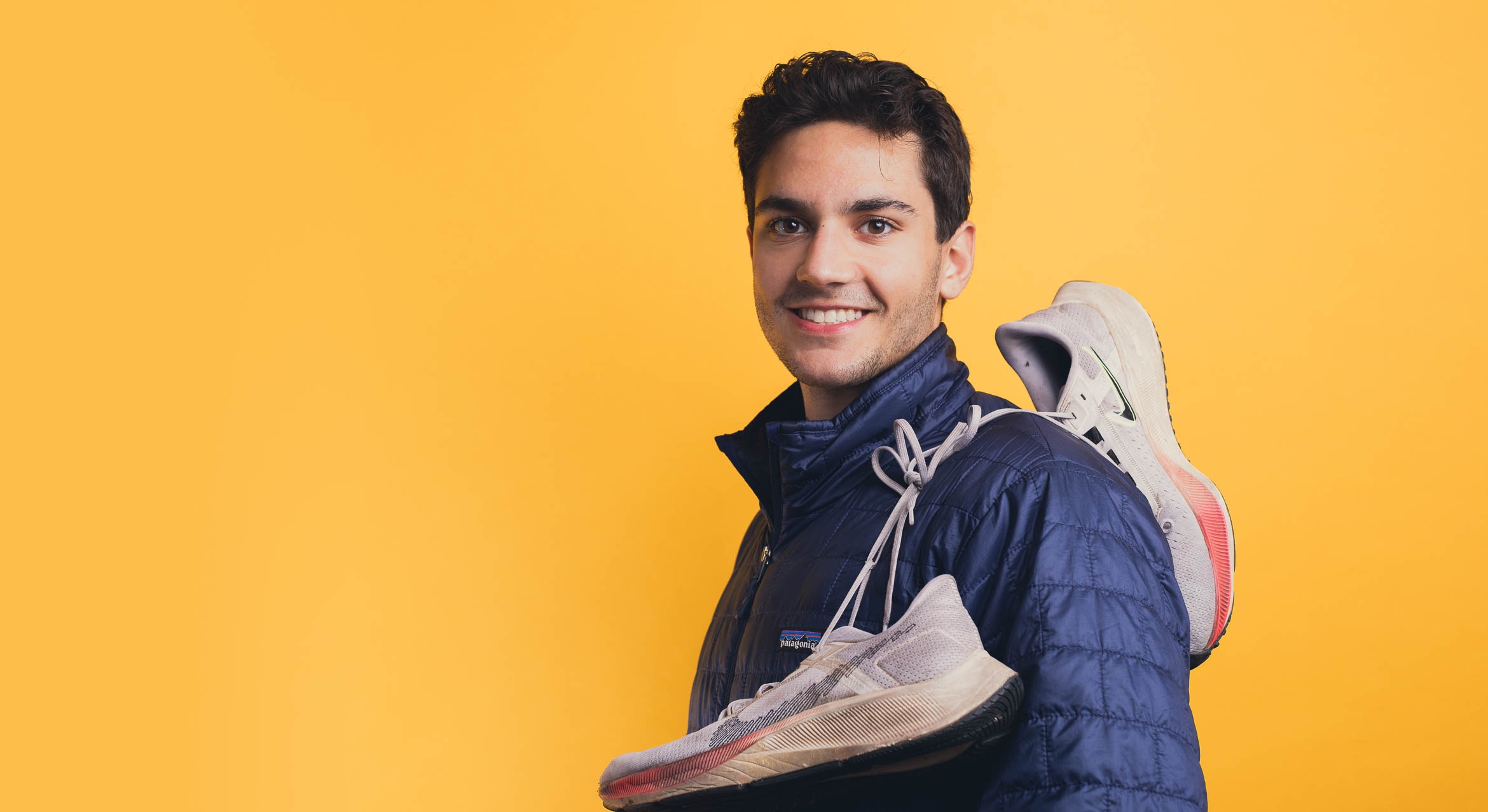
A first-of-its-kind recycling program at UC Santa Barbara has a plan for your old shoes — instead of throwing them out, give them new life.
Spearheaded by second-year environmental sciences major Matthew Schoen, a large-scale shoe drive on campus runs April 1–12, with drop-off bins located at the Recreation Center (Rec Cen), Intercollegiate Athletics Gym (ICA) and the San Miguel, San Nicolas and San Rafael residence halls. Only sneakers and casual street shoes and hikers will be accepted to the reuse and recycling program.
“As an avid runner, it has always bothered me how wasteful my sport is when it comes to its most important piece of training gear,” Schoen said. “Runners can go through three or four pairs of shoes a year, and all of them get tossed into a landfill at the end of their lifecycle.”
As trashed shoes break down, the toxic chemicals of the manufacturing process can leach into the soil and water, he added. “My goal is to create a longterm shoe recycling program that allows students, staff and faculty to participate in society’s transition to a more sustainable future. If successful, this will be the first universitywide shoe recycling program in the nation.”
The student-led Zero Waste Committee has been helping Schoen get the word out as he executes the project through the Environmental Leadership Incubator (ELI), a nine-month mentorship program that helps undergraduates develop hands-on leadership skills to pinpoint an environmental concern and implement a solution. This year, ELI projects include the Isla Vista Fix-It Fair and an art exhibit on edible insects, among others.
After the introductory drive in April, Schoen is aiming to have permanent bins at the Rec Cen, ICA and the Student Resources Building, plus two-week collection drives at the end of each academic quarter at all of the campus dorms. He’s also working on setting up a collection bin in Isla Vista.
On campus, Associated Students Recycling will handle collecting, sorting and shipping the shoes to Miami-based Got Sneakers. Shoes in good condition get set aside for resale, with a portion of the proceeds getting pumped back into the program, Schoen said. Shoes that can’t be resold will be sent to Fast Feet Grinded, based in the Netherlands, where they’ll get ground up and processed into base material for artificial turf, athletic tracks and mats, insulation and other products.
Both shoe-recycling companies have expressed interest in expanding their markets, Schoen said; for Fast Feet Grinded, this partnership represents its first pilot project in the U.S.
Once he gets UCSB’s initiative running smoothly, Schoen is interested in helping other UC campuses set up their own programs.
“I have a couple years to work out the kinks,” he said. “I want this to be permanent.”
Keith Hamm
Social Sciences, Humanities & Fine Arts Writer
keithhamm@ucsb.edu



